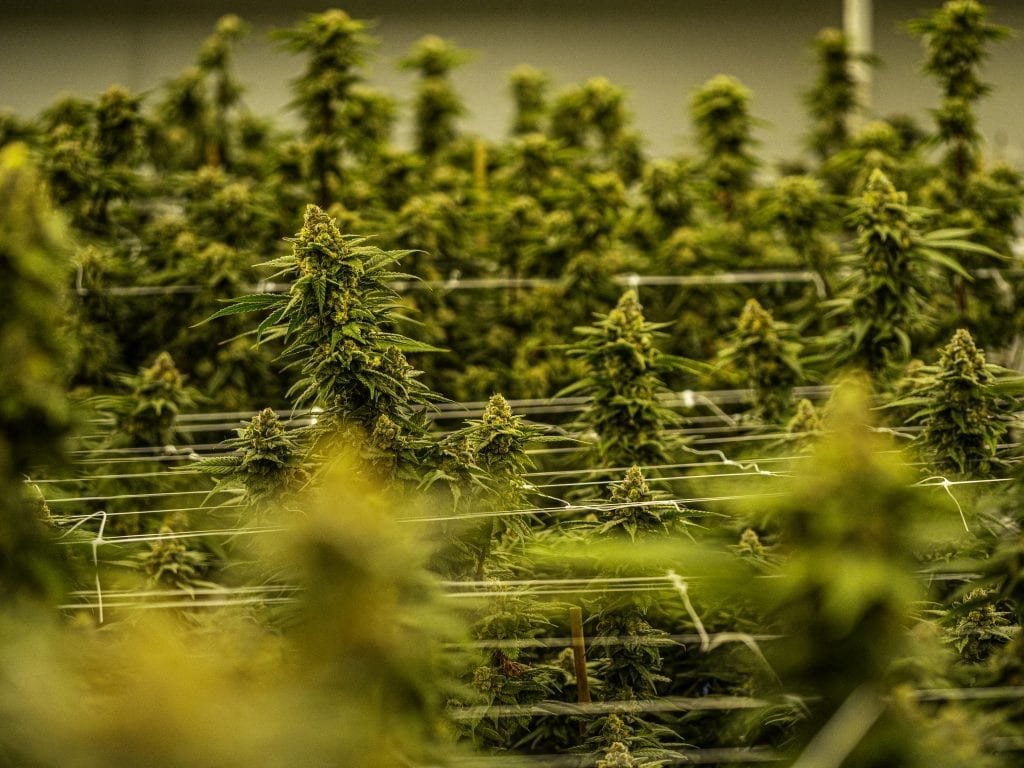Author
Freedom Road
Share
Author
Freedom Road
Share

When you consume cannabis, your body activates and absorbs cannabinoids like THC and CBD, which interact with your endocannabinoid system to influence functions like mood, pain, and sleep. These cannabinoids are then metabolized in the liver into byproducts called metabolites, which are gradually eliminated through urine, feces, or sweat. How long THC or CBD stays in your system depends on factors like frequency of use, dosage, metabolism, and method of consumption. While THC can be detectable for days or weeks, CBD typically clears out within a few days and is rarely screened for in drug tests.
The detectable range for THC metabolites varies widely, from as soon as 12 hours after consumption for occasional use to more than 90 days in the hair follicles of regular consumers. On average, CBD metabolites stay in your body for two to five days, though it could be several weeks for individuals who consume higher or more frequent doses.
At Freedom Road, a full-service growhouse and medical marijuana dispensary in Oklahoma City, empowering customers through education is one of our core values. Our knowledgeable staff is dedicated to helping individuals make informed decisions about medical marijuana use. Whether you’re new to cannabis or seeking to refine your experience, Freedom Road provides guidance on product selection, dosing, consumption methods, and more to help ensure everyone finds the right fit for their unique needs, fostering a comfortable environment where customers can explore cannabis confidently and responsibly.
How Your Body Processes Cannabis Products
Consuming cannabis products introduces the plant’s phytocannabinoids into your body. Cannabinoids are naturally occuring chemical messengers that interact with your body’s endocannabinoid system (ECS), which helps regulate essential functions like mood, appetite, sleep, pain, and immune response. The two most well-known cannabinoids produced from cannabis use are THC and CBD.
Cannabinoids like THC and CBD are not active in their raw form in the cannabis plant. Instead, they exist as precursors—THCA (tetrahydrocannabinolic acid) and CBDA (cannabidiolic acid)—which must be activated through heat in a process called decarboxylation. Smoking, vaping, or cooking cannabis products produces the heat necessary to convert THCA into THC and CBDA into CBD, making them bioactive and able to interact with your body.
Your body processes cannabis and cannabinoids like THC and CBD through a complex interaction between your digestive, circulatory, and nervous systems. Here’s how it works.
- You consume cannabinoids produced by inhaling or ingesting a cannabis product. Inhaled cannabinoids enter the bloodstream through the lungs, while ingested ones pass through the digestive system and liver first.
- The cannabinoids are absorbed by and circulate through your body. Cannabinoids are absorbed into the bloodstream—quickly through the lungs (minutes) or more slowly through the gut (30–90 minutes)–traveling through the bloodstream to various tissues, including the brain, fat cells, and immune system.
- The cannabinoids bind to receptors in the ECS. THC binds directly to CB1 receptors in the brain and central nervous system, producing psychoactive effects like euphoria or altered perception. CBD, on the other hand, interacts more indirectly with both CB1 and CB2 receptors, modulating ECS activity without binding strongly to receptors, and is thought to enhance the effects of naturally occurring endocannabinoids while reducing inflammation and anxiety without causing a “high.”
- The cannabinoids are metabolized. The liver breaks down cannabinoids into metabolites, primarily through the family of P450 enzymes like CYP2C9 and CYP3A4. Metabolites are essentially byproducts created by your body as it processes the cannabinoids. THC is metabolized into 11-OH-THC (also psychoactive), then into THC-COOH. CBD is metabolized into 7-OH-CBD and 7-COOH-CBD, an inactive metabolite found in urine and blood. Active metabolites exert the biological effects of THC and CBD, while inactive metabolites produce no significant effects
- The cannabinoids are excreted. While some of these metabolites are stored in various tissues like fat cells, most are gradually eliminated from the body through urine, feces, and sweat over several days or even weeks, depending on usage patterns and body composition.
How Cannabis Products are Detected in Your Body
The metabolites your body produces through the metabolism of cannabinoids can be detected through various testing methods, including urine, blood, saliva, or hair follicles. Most tests do not look for cannabis itself, instead screening for inactive metabolites stored in fat cells that release slowly over time. The majority of drug tests screen for THC metabolites like THC-COOH and not CBD. Moreover, because CBD is not psychoactive and doesn’t produce the same metabolites as THC, it generally goes undetected. However, certain CBD products–particularly full-spectrum formulations or mislabeled or cross-contaminated products–may contain enough THC to trigger a positive result.
A positive test result for cannabis usually indicates that your body contains detectable levels of THC or its metabolites, meaning you have consumed THC at some point within a detectable window. This can range from a few hours to several weeks, depending on the test type, the dosage you consumed, and your frequency of use. A positive result does not measure impairment or how recently you consumed THC; it just confirms that you were exposed to it.
8 Factors That Affect How Long Cannabis and Cannabinoids Stay in Your System
After you consume cannabis, it isn’t the cannabis plant itself that stays in your system, but the plant’s cannabinoids and the metabolites your body produces as it processes those cannabinoids.
How long these cannabinoids remain detectable–or “in your system”–depends on several factors, including:
- Frequency and amount of use. The more often you consume cannabis, the more metabolites build up in the fatty tissues of your body.
- Method of consumption. How you consume your cannabis can affect how long cannabinoids stay in your system. Edibles, for example, generally take longer to metabolize and clear due to their slower digestive processing. Smoking or vaping allows the cannabinoids to enter and leave the bloodstream more quickly.
- Dosage. Higher doses of cannabis introduce more cannabinoids into the body, which can take longer to metabolize and eliminate, extending the detection window.
- Potency of cannabis. Cannabis with higher THC content delivers more of the psychoactive compound per use, increasing the amount stored in fat cells and the time it takes for metabolites to clear.
- Metabolism. Individuals with faster metabolisms break down and eliminate cannabinoids more quickly, while slower metabolisms may result in longer retention times.
- Body fat and composition. THC and CBD are fat-soluble, so people with higher body fat percentages may retain cannabinoids longer, as they are stored in fat tissues and released slowly over time.
- Liver function. Since cannabinoids are metabolized in the liver, impaired liver function can slow this process, causing cannabinoids and their metabolites to remain in the body longer.
- Food intake. Cannabinoids may be absorbed and eliminated faster when taken on an empty stomach because food, especially fatty foods, can slow down absorption and elimination, potentially lengthening the detection window.
How Long THC and CBD Stay In Your System
How long THC and CBD stay in your system–as well as the onset and duration of their effects–can vary widely from person to person. While both cannabinoids are processed through similar metabolic pathways, a variety of factors play a role in how long they remain detectable. Understanding these differences is important, especially if you’re subject to drug testing or using cannabis products for medical reasons.
THC
When cannabis with THC is smoked or vaped, the effects typically begin within minutes, peaking around 10 minutes, and can last between 1 to 3 hours, though some residual effects may linger for up to 8 hours.
Consuming edibles with THC leads to a delayed onset of effects, usually taking 30 minutes to 2 hours to manifest, with peak effects occurring around 2 hours after consumption. The effects from edibles can last up to 12 hours, and some residual effects may persist for up to 24 hours . Factors such as dosage, individual metabolism, and tolerance levels also influence the duration and intensity of THC’s effects.
The length of time THC remains detectable in the body depends largely on how frequently it’s used.
For occasional users, THC may be present for just a few days to a week. Regular users may retain detectable levels for several weeks, and in some cases, up to a month or more due to THC accumulating in fat tissues. For heavy, chronic users, THC can stay in the system even longer, sometimes exceeding 30 days.
THC metabolites can be detected in the body through several types of tests, each with varying detection windows
In the bloodstream, THC enters quickly but levels drop significantly within 3 to 4 hours after use; however, it may be detectable for up to 12 hours—or even up to 25 days in regular users.
In saliva, THC is absorbed in the mouth and can remain detectable for 24 to 72 hours.
Urine tests offer the longest detection period, with THC present anywhere from one day to over a month, depending on how frequently it’s used.
Hair follicle tests have the widest window, potentially detecting THC for up to 90 days.
CBD
CBD’s effects are generally more subtle and non-intoxicating, with their duration influenced by the method of consumption.
Inhalation methods, such as vaping, can produce effects within 15 minutes, lasting approximately 2 to 4 hours.
Sublingual administration (placing CBD oil or tincture under the tongue) typically results in effects within 15 to 45 minutes, lasting 6 to 8 hours.
Oral consumption through edibles or capsules leads to a slower onset, with effects appearing in 1 to 2 hours and lasting between 6 to 12 hours.
Topical applications may provide localized relief for 5 or more hours, while transdermal patches can deliver effects lasting 24 to 48 hours.
In general, CBD metabolites typically stay in your body for two to five days on average, regardless of the consumption method, though it could linger for weeks in individuals who consume higher or more frequent dosages.
Unlike THC, CBD is non-psychoactive and not commonly tested for in drug screenings. However, if you are concerned about THC, CBD isolate products may be a safer option as they contain pure CBD and no other cannabinoid
Find the Solution to Your Medical Marijuana Needs at Freedom Road
At Freedom Road, we believe that education is the key to safe and effective medical marijuana use. That’s why we’re committed to demystifying cannabis by providing clear, accurate information about its benefits, risks, and responsible consumption. Our knowledgeable team takes the time to understand each patient’s needs and guide them through product options, dosing, and methods of use, empowering them to make informed decisions with confidence. Whether you’re new to medical marijuana or a long-time patient, Freedom Road is here to support your wellness journey with integrity and care. Visit us today.

